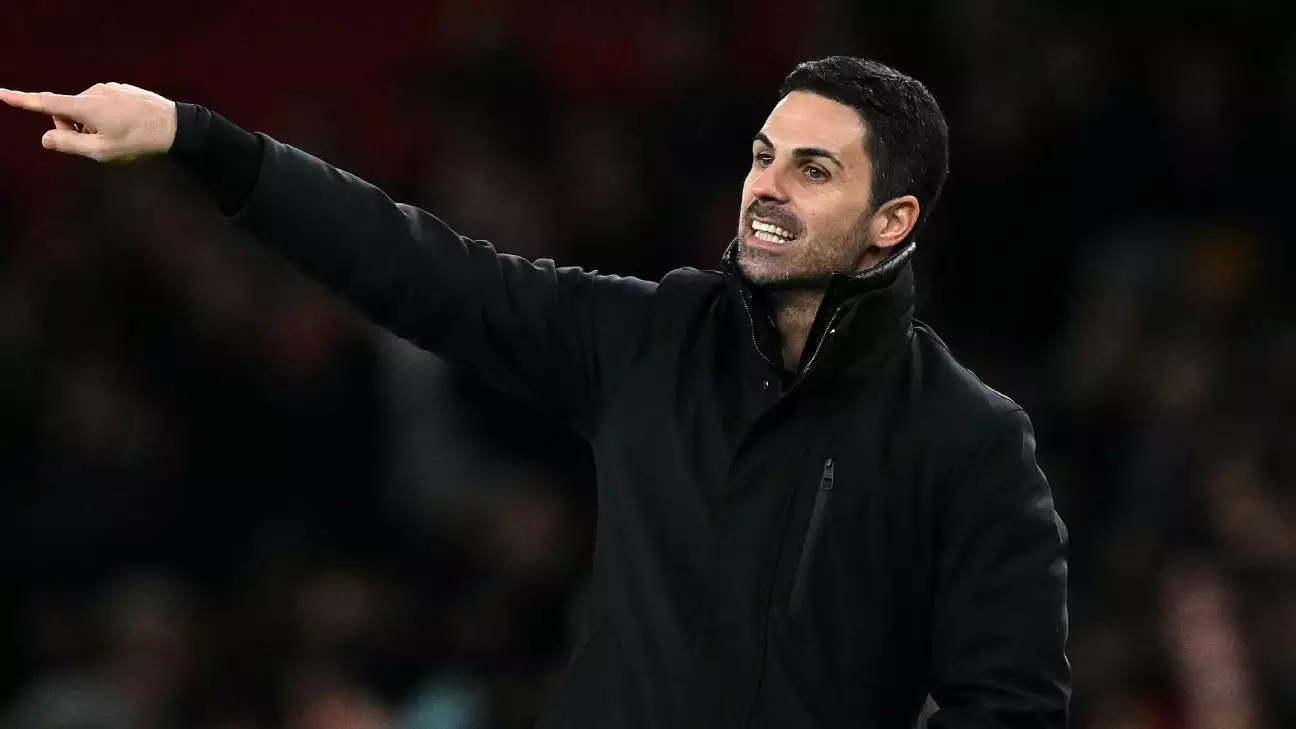In a recent Carabao Cup semifinal, Arsenal faced a surprising defeat against Newcastle United, with a scoreline of 2-0. The loss places significant pressure on the Gunners as they prepare for the second leg on February 5. This matchup demonstrated not only the tactical frailties of the team but also highlighted a crucial aspect: adaptation to a different game ball.
Mikel Arteta, Arsenal’s manager, pointed out that the team’s difficulties may have stemmed from their inability to adjust to the Carabao Cup’s ball, which is distinct from the standard Nike ball used in the Premier League. This difference in equipment may seem trivial, yet it can profoundly affect players’ performance. Arteta noted that the Puma ball “flies a lot” and that it has a different grip, making it difficult for players to adapt quickly during the game.
Hindsight allows us to assess that the Gunners had a remarkable expected goals figure of 3.12, indicating that they created numerous opportunities yet failed to convert any into goals. This statistic isn’t just a number; it reflects a significant missed opportunity for victory and could serve as psychological baggage for the team moving forward.
Psychological factors in football cannot be overlooked, especially after a match where a team clearly outplayed their opponents but could not find the back of the net. Arteta acknowledged this concern, emphasizing the need to address these missed opportunities without dwelling on the past. He remarked on the necessity of showcasing improvements and providing players with practical tips to enhance their finishing skills.
The challenge lies in ensuring that players remain focused on future matches rather than being haunted by past failures. The emotional weight of a game where one’s performance exceeds the outcome can be detrimental if not managed effectively.
It’s interesting to note that Arteta is not new to the challenges posed by different ball specifications. His experience with Manchester City’s coaching staff during Pep Guardiola’s tenure provides insight into how significant equipment changes have historically affected performances. Guardiola had previously bemoaned the distinctiveness of the Mitre ball following a cup match, suggesting that scoring with it was unusually difficult.
This persistent issue hints at ongoing discussions around standardizing equipment across competitions. While the EFL assures that the balls meet FIFA standards, the actual play experience can vary drastically, impacting players’ confidence and skill execution.
As Arsenal gears up for the return leg of the semifinal, the focus will undoubtedly shift towards rectifying these issues. The upcoming match serves as an opportunity for the Gunners to demonstrate resilience and adaptability in the face of adversity. A clear strategy to overcome the unique challenges that the Carabao Cup presents will be essential for transforming their fortunes and aiming for success in this highly competitive tournament.
Ultimately, this season’s lessons may extend beyond mere tactics; they reflect a broader understanding of how mental fortitude and adaptability to change are critical components in a team’s journey to glory.

